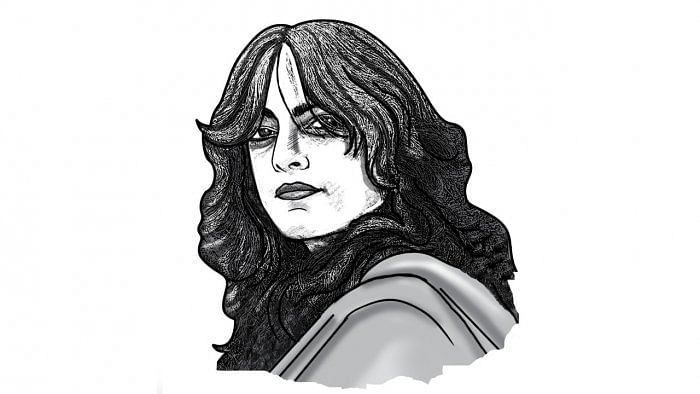
Anti-corruption campaigns are catnip to voters. Everyone wants to see the dubiously rich and powerful taken down a peg—the richer and more powerful than themselves, that is. But nothing really changes except the cast. The self-styled ‘clean’ BJP government goes after the alleged corruption of its political opponents in search of power, not propriety. If it cared for financial transparency, then PM-CARES, the electoral bonds scheme, and ‘buying’ state governments with magical crores is a funny way to show it.
No, nothing has changed. And when Modi cheerleaders start to rail against corruption-worse-than-the-Congress’ in BJP-ruled Karnataka, you know that not even the faithful can pretend any longer. That’s apart from the small-scale corruption permanently embedded into the everyday life and business of the nation. Dirty money, crony capitalism, and low-grade cheating—it’s not a pretty picture.
But there are other, worse forms of corruption.
Political Hindutva (the use of Hindu identity for political purposes, as opposed to Hinduism the religion) has been growing like a malignancy, lesion by lesion, for decades, and it is rotting India’s already imperfect democratic, secular, pluralist flesh. The Republic is far from dead, but parts of it are undead, zombified by a deliberate corruption of our founding ideals.
We’ve been watching this for years now—chauvinism steamrolling justice, law, and basic human decency to valourise certain kinds of people for oppressing and killing certain other kinds of people. We’ve been watching public representatives of this chauvinism back their constituents and repeatedly survive any blowback. We’ve seen a perversion of morality settle into the public view, via public representatives and State officials: the then Union Minister for Culture visiting the family of Ravi Sisodia -- who lynched Mohammed Akhlaq in Dadri -- whose body lay draped in the national flag. The then Union Minister of State for Civil Aviation, Jayant Sinha, garlanding eight people convicted of lynching a Muslim cattle trader. PM Modi hosting a felicitation for social media trolls, including one best known for celebrating the murder of journalist Gauri Lankesh. The BJP catapulting terror-accused Pragya Singh Thakur to Parliament, while jailing journalist Siddique Kappan for some invented future crime. BJP members marching in support of the men accused of raping the 8-year-old child in Kathua. The BJP leadership repeatedly roaring for ‘Hindu sentiments’ and maintaining radio silence in the face of anti-minority violence. We’ve seen how a cancerous ideology can hollow out a democracy and overwhelm all its institutional defences.
So, as journalist Jyoti Punwani has pointed out, it isn’t surprising to watch the State of Gujarat release the criminals who gang-raped Bilkis Bano and murdered and mutilated her family and child in the 2002 Gujarat riots, and to watch those who should never again have seen a day of freedom be welcomed home like heroes and be called good Brahmins with good values, and to hear the silence of the country’s leadership.
But, of course, ‘unsurprising’ is not the same as ‘oh well’. There is nothing new to say about these grotesque perversions of ethics, but if it doesn’t bring political Hindutva’s barbaric face into sharp relief for you, nothing is likely to.
The rapist-murderers were released on our 76th Independence Day, by the BJP government of the PM’s home state, advised by a panel comprised heavily of BJP representatives and supporters. Almost no BJP leader has made any public comment about their release, except to defend the PM. If that’s not a pointed display, I don’t know what is. To get into the legal weeds of the remission policy, to start arguing about whether releasing rapists is consistent with Beti Bachao, Beti Padhao is to miss the big picture, and the big picture is this: Hindutva proudly holding up a new-birthed version of the republic for inspection and allegiance, like Rafiki holding up Simba in The Lion King—except that it’s not a heart-melting cub, but an abomination, destined to prevail by force and fear and complicity and absolute amorality.
(Disclaimer: The views expressed above are the author's own. They do not necessarily reflect the views of DH.)